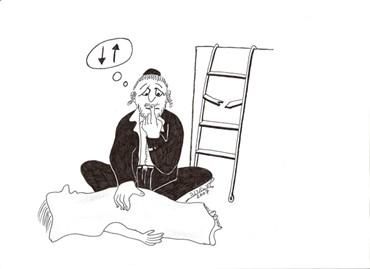
In the Torah there is a section which discusses one man accidentally killing another. The relatives of the dead man are permitted to avenge his blood and kill the one who killed him, without trial or jury. One who accidentally killed is given the opportunity to be saved from “the blood-redeemers vengeance” if he flees to one of the six cities designated as shelters.
It is written in the Torah: “Then you shall appoint cities for yourselves, cities of refuge they shall be for you, and there shall flee the manslayer who kills any person through error. The cities shall be for you a refuge from the avenger so the manslayer shall not die” (Numbers 35:11-12).
Though the laws of accidental manslaughter and of cities of refuge are no longer applicable after the destruction of the Holy Temple, the sages indulged in sophistry and determined many boundaries and laws about the “accidental killer.” Thus, for example, the sages ruled that if a person is coming down a ladder and falls, and in his fall he kills a person who stood below him, he is to be considered an accidental killer who must be exiled to a city of refuge if he wishes to be saved from the vengeance of the victim’s family. But if he were going up the ladder and fell while ascending, killing a person who stood below him by his fall — he is not exiled. They ruled this from the verse “And fell upon him and killed him” (Numbers 35:23); he must fall in the usual manner of falling.
After the sages drew a distinction between one who kills while going up a ladder and one who kills while coming down, the sage Rabbi Avihu asked: what is the rule for a person who goes up a ladder and a rung breaks, falling and killing a person who stood below? Is this considered ascending, as the person was going up, or descending, as the rung fell?
The Talmud rules that this case is considered falling on the way down and that the person must be exiled.
(Babylonian Talmud, Tractate Makkot 7b)
